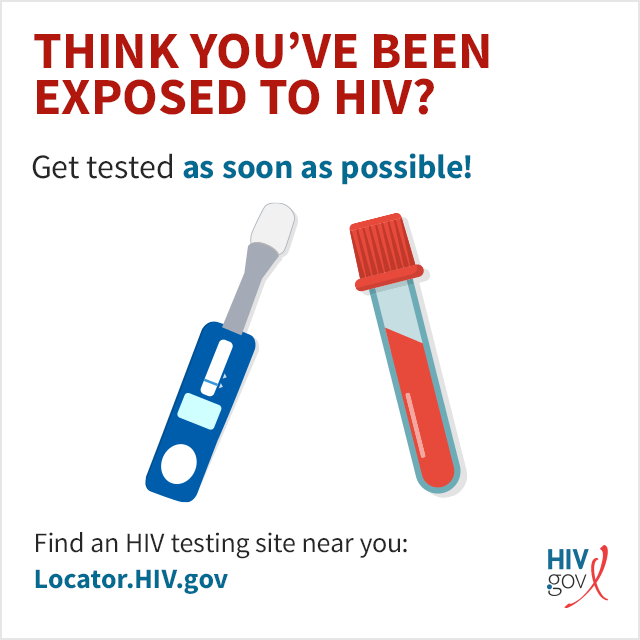Acute and Chronic HIV
Summary
- Untreated HIV has three stages: acute infection, chronic infection (which often has no symptoms), and AIDS (acquired immunodeficiency syndrome).
- With effective HIV treatment available, most people in the U.S. who have HIV do not progress to AIDS, but it’s important to take HIV medicine as prescribed to stay healthy.
- The only way to know for sure if you have HIV is to get tested—use the HIV Services Locator to find testing near you.
How does HIV progress?
Without treatment, HIV typically progresses through three stages: acute HIV infection, chronic HIV infection, and AIDS. This progression can happen over months or years. HIV treatment can slow or prevent the progression of the disease.
Acute HIV Infection

This is the earliest stage of HIV infection. Within 2 to 4 weeks after infection with HIV, about two-thirds of people will have a flu-like illness. This is the body’s natural response to HIV infection. In the acute stage, HIV is multiplying rapidly throughout the body, attacking and destroying the immune system. The level of HIV in the blood is very high in this stage, which greatly increases the risk of HIV transmission. If you have flu-like symptoms and think you have been exposed to HIV, get tested.
Chronic HIV Infection
This stage can also be called clinical latency or asymptomatic HIV infection. In this stage, the virus still multiplies, but at very low levels. People in this stage may not feel sick or have any symptoms.
Without HIV treatment, people can stay in this stage for 10 or 15 years, but some move through this stage faster.
If you take HIV medicine exactly as prescribed and get and keep an undetectable viral load, you can live and long and healthy life and will not transmit HIV to your HIV-negative partners through sex.
But if your viral load is detectable, you can transmit HIV during this stage, even when you have no symptoms. It’s important to see your health care provider regularly to get your viral load checked.
AIDS
If you have HIV and you are not on HIV treatment, eventually the virus will weaken your body’s immune system and you will progress to AIDS (acquired immunodeficiency syndrome).
This is the late stage of HIV infection.
Symptoms of AIDS can include:
- Rapid weight loss
- Recurring fever or profuse night sweats
- Extreme and unexplained tiredness
- Prolonged swelling of the lymph glands in the armpits, groin, or neck
- Diarrhea that lasts for more than a week
- Sores of the mouth, anus, or genitals
- Pneumonia
- Red, brown, pink, or purplish blotches on or under the skin or inside the mouth, nose, or eyelids
- Memory loss, depression, and other neurologic disorders
Each of these symptoms can also be related to other illnesses. The only way to know for sure if you have HIV is to get tested. If you are HIV-positive, a health care provider will diagnose if your HIV has progressed to stage 3 (AIDS) based on certain medical criteria.
Many of the severe symptoms and illnesses of HIV disease come from the opportunistic infections that occur because your body’s immune system has been damaged. See your health care provider if you are experiencing any of these symptoms.
But be aware: Thanks to effective treatment, most people in the U.S. with HIV do not progress to AIDS. If you have HIV and remain in care, take HIV medicine as prescribed, and get and keep an undetectable viral load, you will stay healthy and will not progress to AIDS.
Read more about the difference between HIV and AIDS.